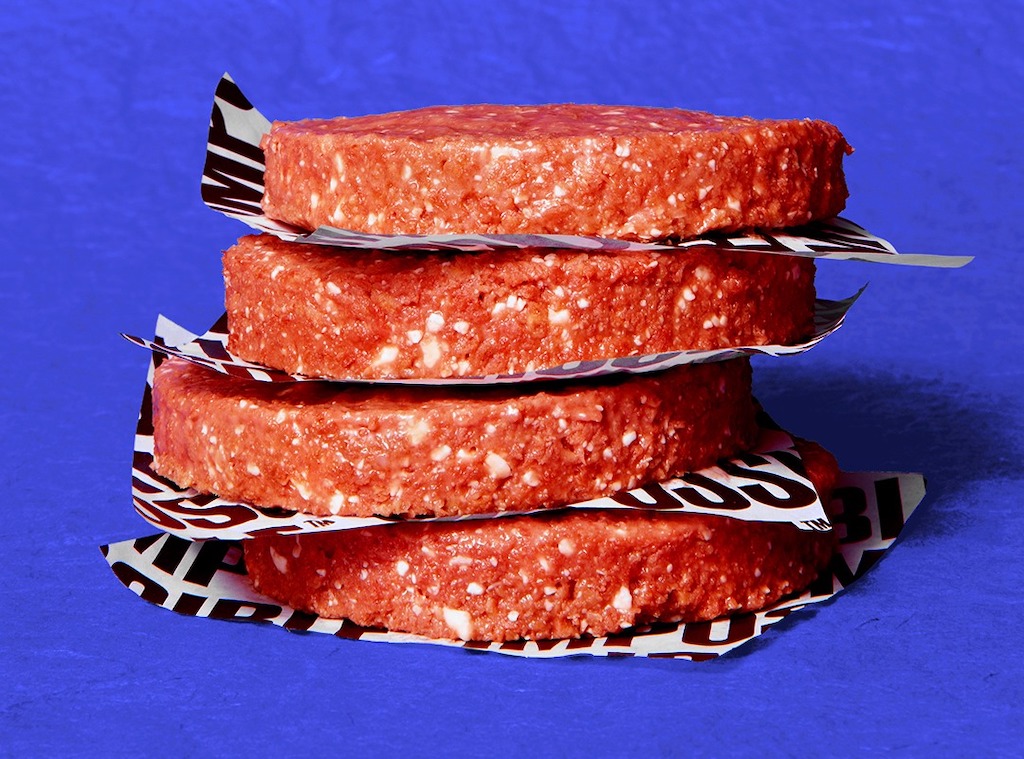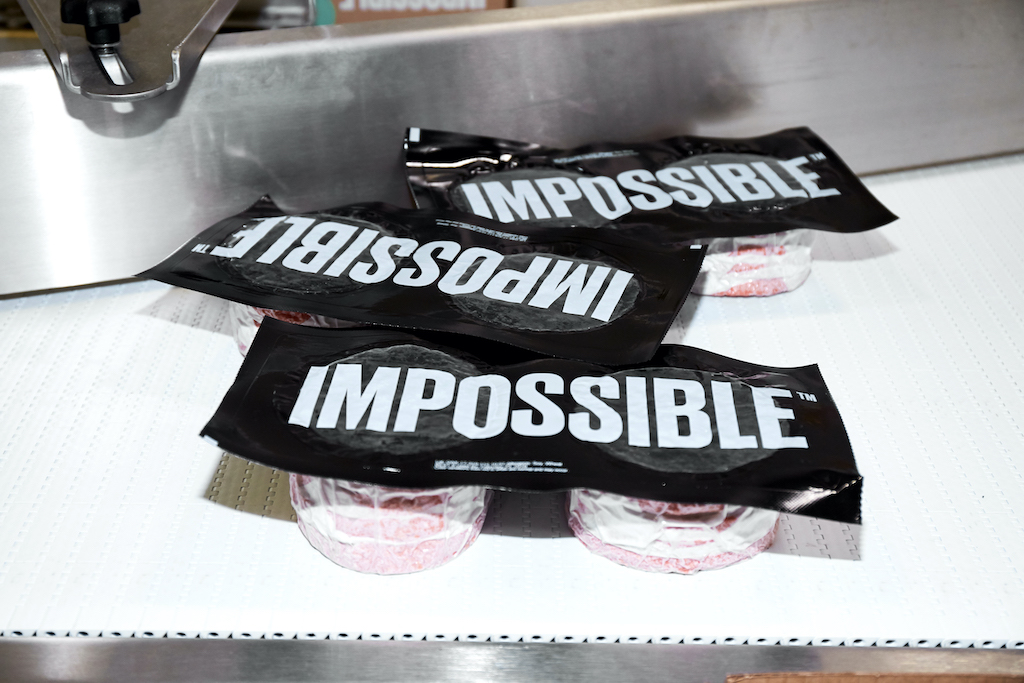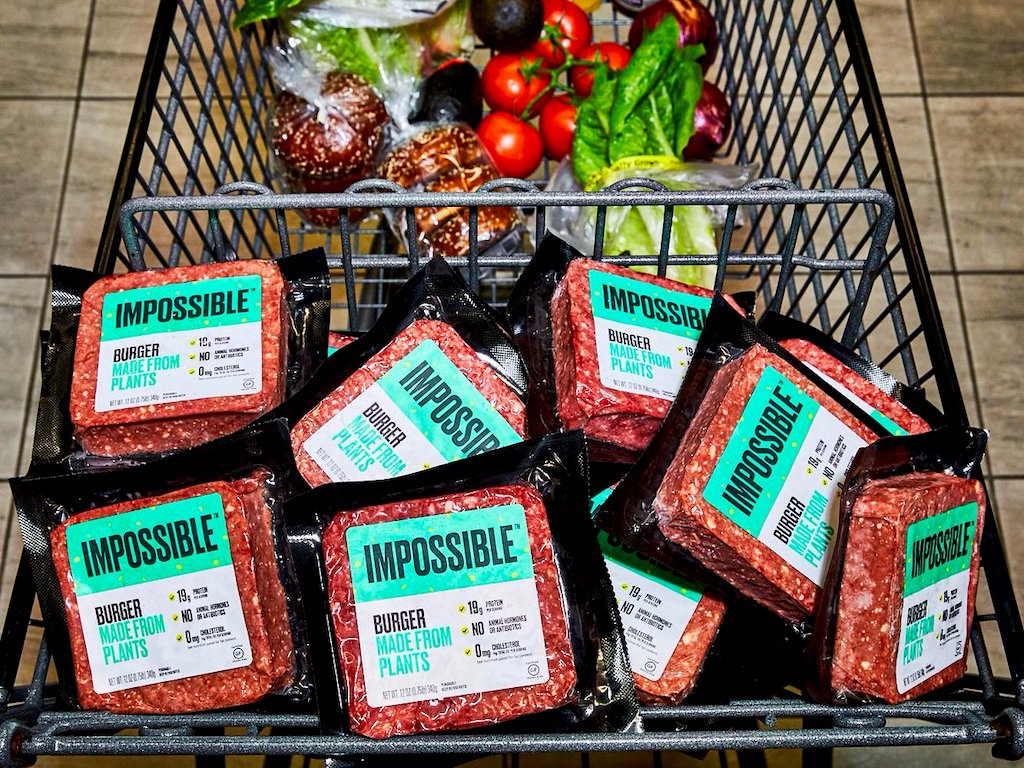3 Mins Read
Impossible Foods has announced that it is dropping wholesale prices in the U.S. and in international markets, in a move aimed squarely at competing with conventional animal meats and reaching mass consumers. As demand for plant-based foods continues to grow, enabling the Silicon Valley startup to reach new production records, prices are projected to continue to lower in the future to “ultimately undercut those of animal-derived foods”.
The maker of the famous heme-filled bleeding plant-based patties Impossible Foods is slashing wholesale prices for a second time in 12 months, starting off with a 15% price cut in the U.S. market for foodservice distributors, asking them to pass on the savings to restaurant partners and consumers. The lowered prices will apply to its quarter-pound and third-pound Impossible Burger patties, 5-pound bulk packages and its newest product Impossible Sausage.
Impossible Foods will also extend the price drop to distributors in its international markets, including in Canada, Hong Kong and Singapore this month. While the margin will vary by location, the startup says that it will be a “double-digit” decrease applied to all its foodservice products sold overseas.
Our stated goal since Impossible Foods’ founding has always been to drive down prices through economies of scale, reach price parity and then undercut the price of conventional ground beef from cows.
Patrick Brown, Founder & CEO, Impossible Foods
“While we couldn’t and wouldn’t determine pricing for independent third parties, we sincerely hope our food distributor colleagues pass along this price cut to hard-working restaurateurs and their customers in this unprecedented time of need,” said Dennis Woodside, president at Impossible Foods.

The move comes amid a record-high for Impossible Foods sales in 2020, as the coronavirus pandemic turns consumers away from conventional meat more than ever before. According to the company’s data, 92% of sales of its famous bleeding plant-based Impossible Burger is directly displacing animal-derived meats and the trend has driven the “largest operational expansion” in the food tech’s 10-year history.
Overall, first-time buyers of all plant-based meat brands have indicated willingness to continue purchasing the animal-free version even when the pandemic subsides – a shift that will ultimately lead to greater economies of scale for plant-based producers to lower prices over time. Impossible Foods’ own manufacturing footprint alone has increased six-fold since 2019.
Today’s price cut is just the latest – not the last – step toward making the food system sustainable.
Patrick Brown, Founder & CEO, Impossible Foods
“Our stated goal since Impossible Foods’ founding has always been to drive down prices through economies of scale, reach price parity and then undercut the price of conventional ground beef from cows,” said Impossible Foods founder and CEO Patrick Brown.

“Less than a year ago, we cut foodservice prices by 15%. Today’s price cut is just the latest – not the last – step toward making the food system sustainable,” Brown added.
In an annual report published just before the turn of the new year, Impossible Foods reiterated its goals to go beyond offering beef and pork analogues, and to develop an entire platform of plant-based alternatives to displace all animal-based food categories.
Impossible’s ambitions to create plant-based alternatives for dairy was revealed in October, when it stated that the funds it has raised in 2020 – two impressive Series F and Series G rounds totalling US$700 million despite the economic turmoil – will be used to expand its R&D team and focus on more varieties of animal-free product formats and types.
“Impossible Foods is inventing it – a new technology platform for transforming plants into delicious, nutritious, affordable meat, fish and dairy foods, replacing the old animal-based technology in the global food system,” said Brown.
All images courtesy of Impossible Foods.




